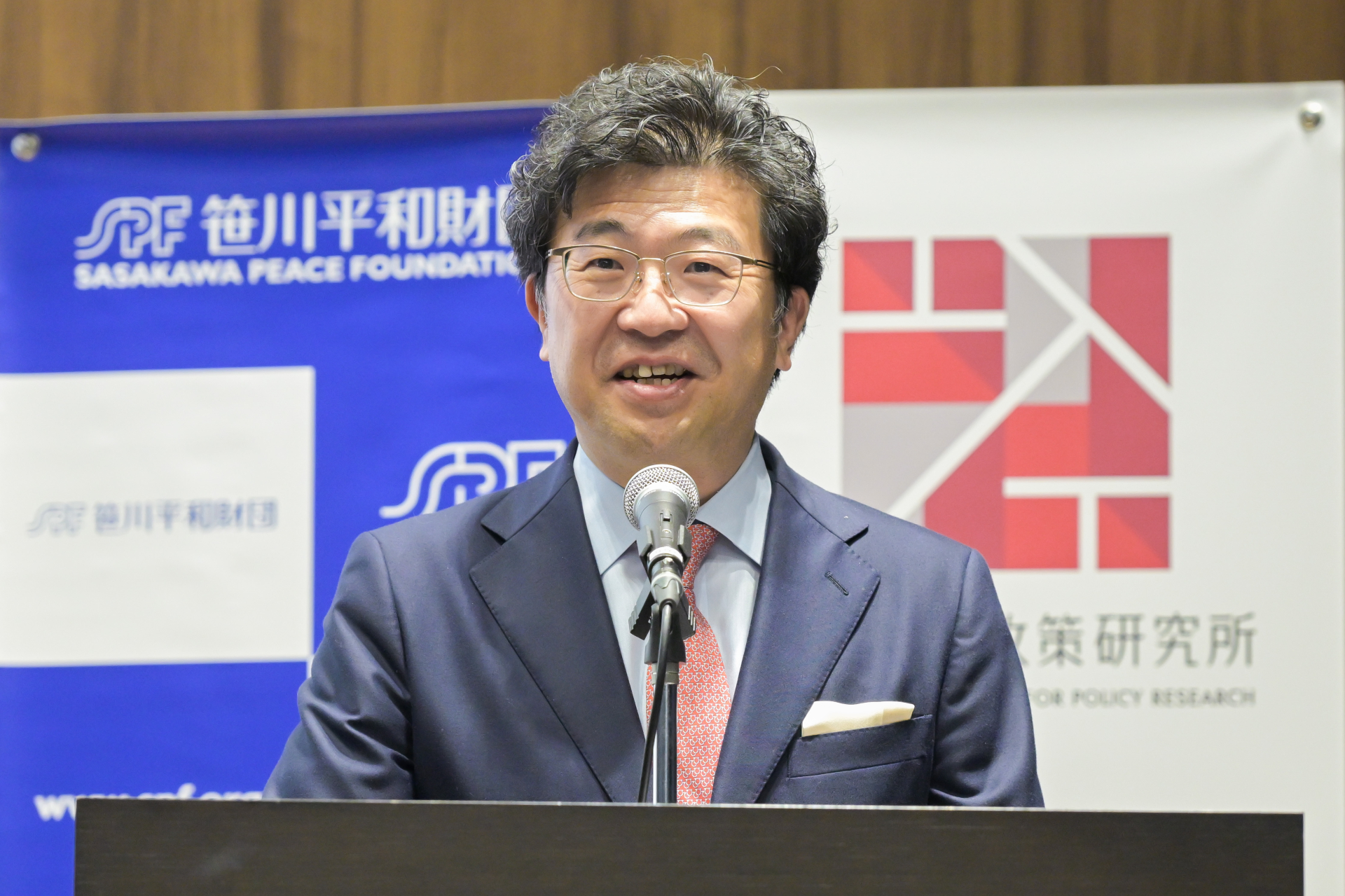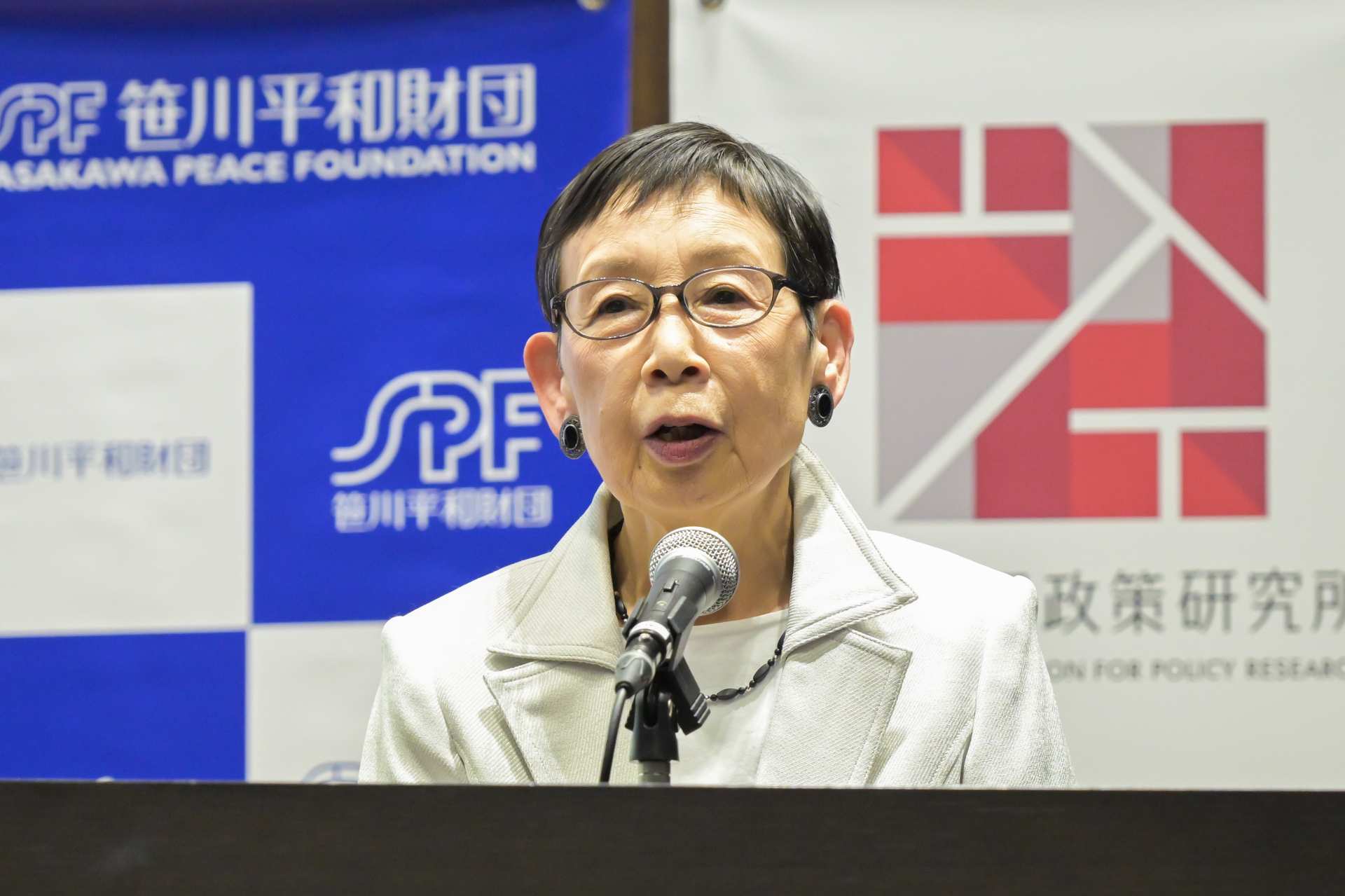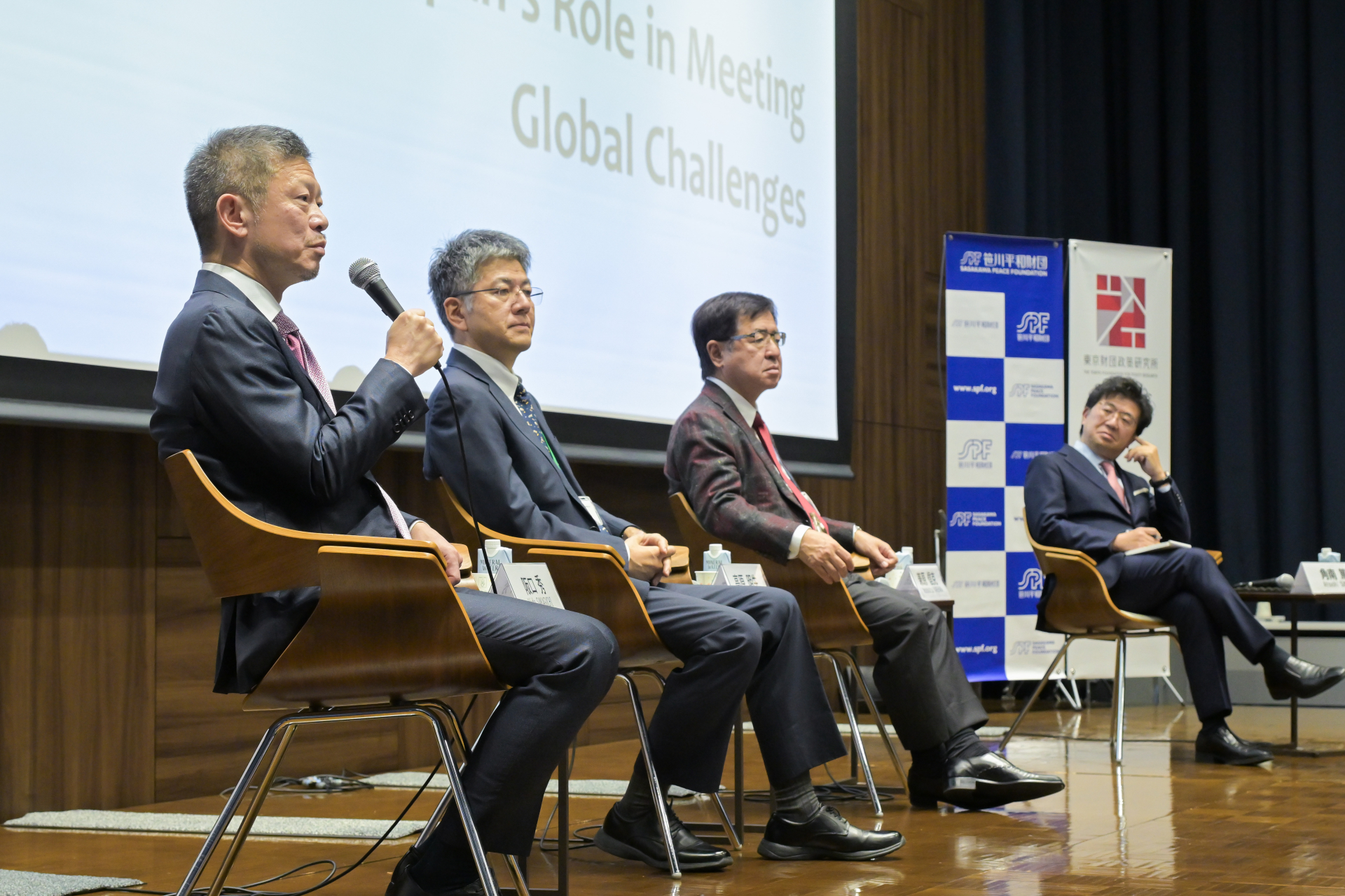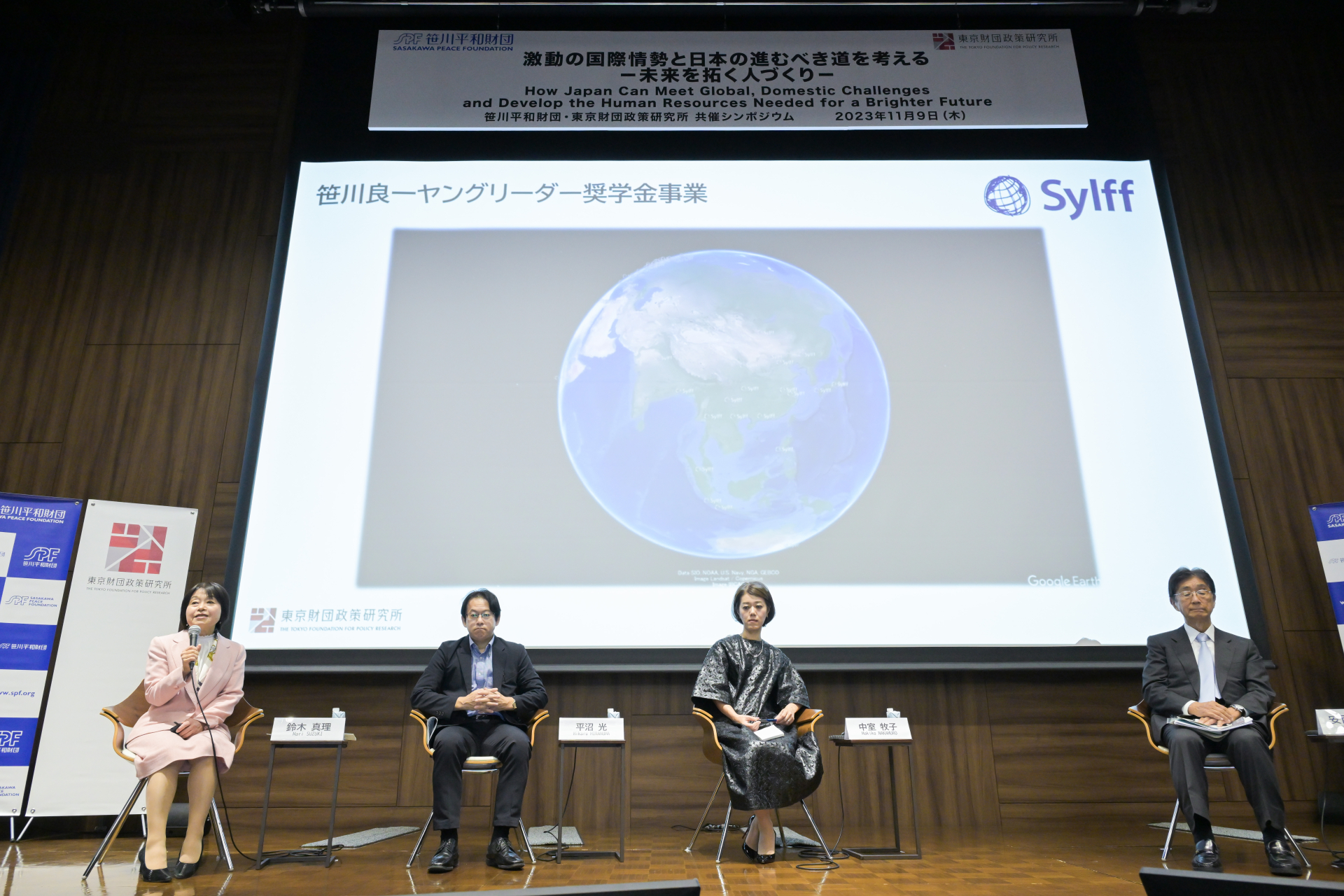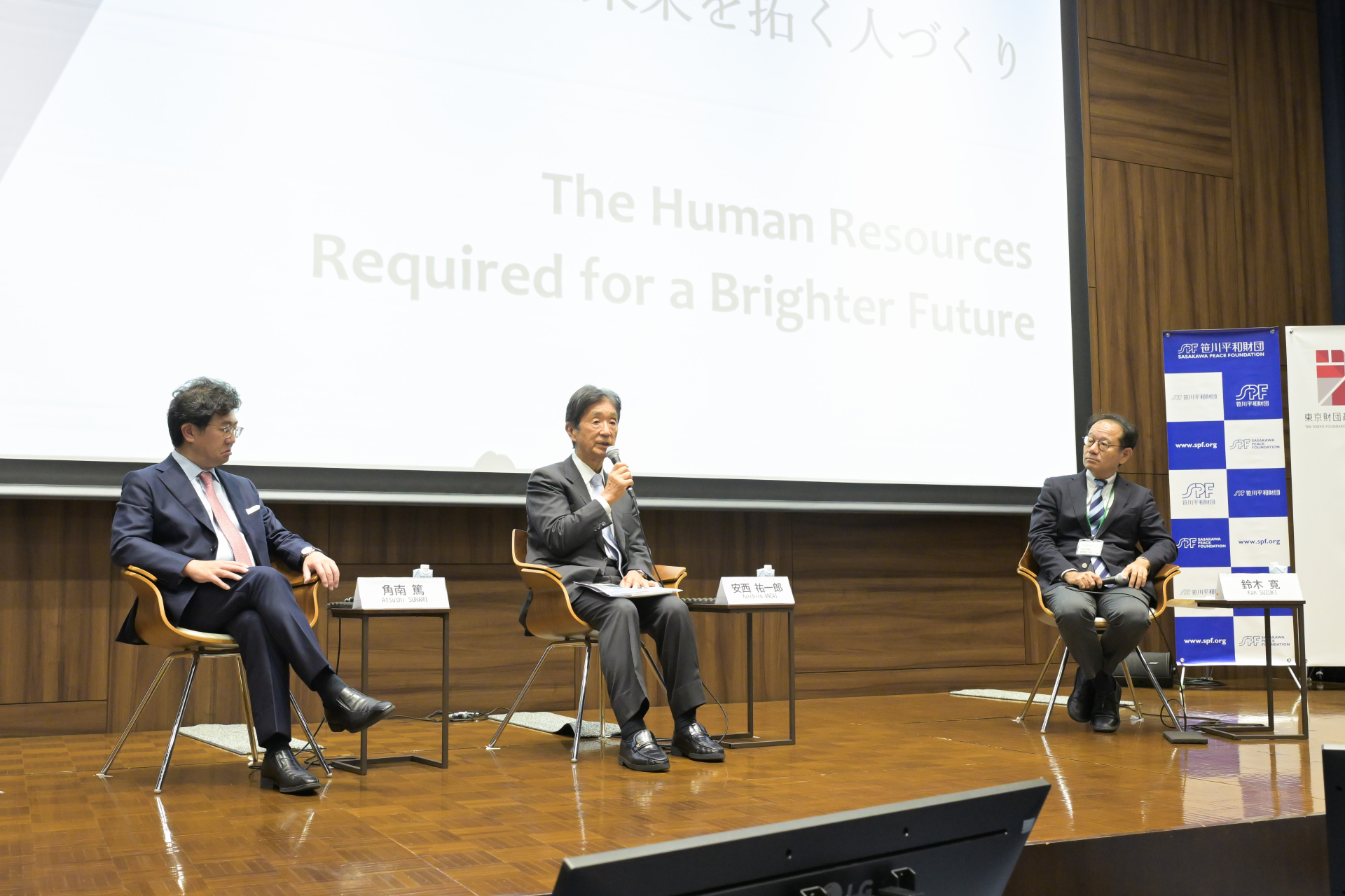On November 9, 2023, representatives from the Sasakawa Peace Foundation (SPF) and the Tokyo Foundation for Policy Research, which are both part of the more than 20 organizations affiliated with The Nippon Foundation, joined forces to discuss the role of Japan, which itself stands at a crossroads, and consider the human resources necessary to tackle the challenges posed by the rapidly changing global situation. At the symposium, the first to be co-hosted by the two foundations, there was a shared sense of urgency about stagnation in Japan as well as broad agreement about the critical role of think tanks to develop the human resources needed to lead Japan and the international community.
The opening remarks were delivered by Dr. Atsushi Sunami, president of SPF. He specified the key issues for the symposium as being how we should respond to the international situation and changing world order; climate change and other environmental developments at the global level; technical innovations such as space development; and demographic trends such as declining birthrates and aging populations. Dr. Sunami also noted the limitations of current approaches and spoke of the need for new ways to develop human resources.
The panel for Session 1 featured SPF Executive Director and Ocean Policy Research Institute (OPRI) President Hide Sakaguchi, SPF Executive Director Nobukatsu Kanehara, and SPF Trustee Akio Takahara, along with SPF President Sunami as moderator.
For much of the postwar period, Japan's GDP was second only to the United States. However, when the economic bubble burst, there followed a period of economic stagnation and by 2010, Japan found itself displaced by China. Today, China boasts a GDP four times that of Japan, and it is only a matter of time before Japan is also overtaken by India. ASEAN is expected to enjoy moderate growth for the foreseeable future, while the Global South, the emerging and developing countries located predominantly in the southern hemisphere, is steadily growing in stature. There are fears of a further decline in Japan's influence within the international community.
In consideration of these trends, Mr. Kanehara pointed out that India and ASEAN were both expected to surpass Japan in GDP terms within the next 10 years. "Developing countries are not necessarily united," noted Mr. Kanehara. "Russia and China, nations that stand in steadfast opposition to liberal societies, haven't managed to bring developing nations together through the medium of a shared ideology. Meanwhile, liberal nations themselves are becoming increasingly multipolar, producing a new style of leadership in countries such as India, Indonesia, Mexico and Brazil."
According to Mr. Kanehara, this poses the fundamental question of how we go about redesigning the international community of nations. It also means that we need Japanese people who are capable of designing a new Japan. Mr. Kanehara stressed the need for a more pragmatic and realistic approach, both internally and externally, to the core question of the state, its reason for being, and its ability to survive and even flourish. He noted that SPF is actively engaged in nurturing future leaders both in Japan and on the international stage.
Dr. Takahara defined our current predicament as "the age of compound crisis."
"Have we ever had a summer in Japan like this year, thanks to climate change?" he asked. "And then there's the COVID-19 pandemic and wars breaking out around the world. We live in a climate of fear and uncertainty. We have lost our sense of safety and security. It is this sense of compound crisis that leads to division."
According to Dr. Takahara, this age of compound crisis requires a measured approach predicated on “human security.” Every single human life is important, so we need to respect the sanctity of life and the basic right of people to live their lives in safety. Dr. Takahara added that Japan has a duty to lead the way in coordinating international cooperation efforts designed to address the many common challenges we face in the current era, predicated on the fundamental principle of safety and security for all.
Dr. Sakaguchi then spoke about the relationship between ocean policy and peace.
He pointed out that there is still much we don't know about the world’s ocean, around 90% of which remain unmapped and unexplored to this day. This is partly due to the enormous expenses of oceanic surveying. As a result, we have not been fully aware of the rise in sea temperatures due to climate change and the devastating impact on marine ecosystems. Dr. Sakaguchi outlined the key role of ocean policy and issued the following plea in regard to ocean studies and associated international rules.
"The ocean is a shared resource for all humankind. Focusing on the ocean might seem counter-intuitive to the needs of humans perpetually in conflict over land. Rather than channeling our energies into snatching land from each other, surely it is more important for us all to come together and focus our efforts on protecting our ocean. Working to protect the ocean, our common shared asset, is something that can bring us all together. That is why I believe that a genuine commitment to ocean policy is a means of bringing peace to humanity."
Dr. Sakaguchi also pointed to the recent surge of interest in ocean policy studies, as evidenced by the proliferation of ocean and marine policy courses at universities around the world. At the same time, he pointed out the almost complete absence of dedicated ocean policy institutions in Japan, with the notable exception of OPRI at SPF. According to Dr. Sakaguchi, although OPRI is not a university, it is committed to leading the way on ocean policy at the global level as a think tank.
